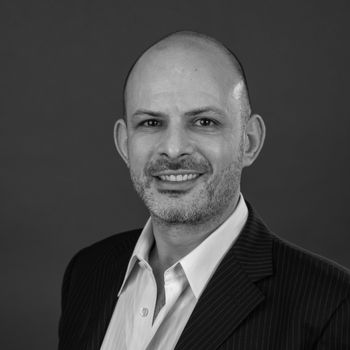PROF GIORDANO: Let's reclaim America's founding this July 4th
It is crucial to present an accurate portrayal of American history and avoid applying 21st-century standards to those who lived in the 18th century.
Nicholas Giordano is a professor of Political Science, the host of The P.A.S. Report Podcast, and a fellow at Campus Reform’s Higher Education Fellowship. With 2 decades of teaching experience and over a decade of experience in the emergency management/homeland security arena, Professor Giordano is regularly called on to speak about issues related to government, politics, and international relations.
On this 4th of July, America stands at a crossroads. Division is rampant and too few have little knowledge and understanding of our nation’s founding and its impact on modern civilization. The American education system has been hijacked by far-left ideologues intent on promoting a political agenda that prioritizes left-wing activism over civics. Consequently, the anti-American sentiment permeating on college campuses distorts students’ perspectives and perpetuates a false narrative that wrongly portrays America as inherently racist and oppressive. It is possible to acknowledge America’s sins without undermining the individuals and ideals that have shaped our nation.
We must prioritize a robust civics education that emphasizes core American values such as liberty, freedom, and civic obligation. It is crucial to present an accurate portrayal of American history and avoid applying 21st-century standards to those who lived in the 18th century. By doing so, we equip future generations with a deeper understanding of our nation’s past and the principles that have shaped it.
Prominent figures like George Washington and Thomas Jefferson rightly command significant attention due to their iconic status. However, our nation’s inception also involved a number of individuals from various backgrounds, each contributing significantly to the formation of America’s foundation. This historical tapestry, woven together by people of various ethnicities, races, and backgrounds, serves to expose the fallacy inherent in the leftist narrative that simplistically depicts the country’s founding as exclusively dominated by privileged white men.
[RELATED: PROF GIORDANO: We need urgent reforms to restore American excellence]
Among the many influential figures, Filippo Mazzei, an Italian merchant who arrived in the United States in 1773, stands out. Mazzei’s profound impact on the Declaration of Independence is undeniable, as his steadfast conviction that “All men are by nature equally free and independent” would eventually become a cornerstone of the American Creed. Mazzei advocated for the principles of liberty, equality, and religious freedom, playing a prominent role in promoting the ideals of republicanism, yet so many are unaware of Mazzei’s influence in the fight for independence.
The notion that ‘all men are created equal’ reverberated from the earliest stages of our nation’s history. Lemuel Haynes, a free Black man who fought in the Continental Army, was fascinated by the Declaration of Independence and penned one of the first anti-slavery pamphlets - “Liberty Further Extended.” He eloquently argued that liberty is essential to life and slavery is a sin against God.
As a teenager, James Forten, an esteemed Black businessman and one of Philadelphia’s wealthiest individuals, valiantly fought in the American Revolution. Following his service, he recounts his firsthand experience fighting alongside his White counterparts united by the idea that ‘all men were created equal.’
Gouverneur Morris, a figure often overlooked in historical narratives, made a pivotal editorial decision during the Constitutional Convention to amend the Preamble of the Constitution, replacing the original wording with the iconic phrase, “We the People of the United States.” Morris was a vocal critic of slavery, labeling it a “nefarious institution” that contradicted the very principles of liberty. In fact, slavery was heavily debated at the Convention, and Luther Martin argued that the practice was “dishonorable to the American character.”
These examples are not meant to diminish the sins of slavery. However, I refuse to allow our history to be commandeered and reduce it to a simplistic dichotomy of oppressor versus oppressed. This distortion intentionally overlooks the intricate dynamics that have shaped our journey as a nation. Perpetuating a cycle of ignorance will further factionalize our society and corrode the progress and stability we worked so hard to achieve.
Perhaps if our educational institutions placed greater emphasis on the complex debates and highlighted the contributions of the diverse range of people that influenced our founding, we would have a deeper appreciation for our great country and a renewed dedication to the principles that make America exceptional.
Editorials and op-eds reflect the opinion of the authors and not necessarily that of Campus Reform or the Leadership Institute.

